Building a Sustainable Media Ecosystem in Africa: Daily Trust, MDIF, Media Leaders Highlight Opportunities
The Media Sustainability Conference in Abuja brought together media professionals to discuss innovation, revenue diversification, and resilience. Experts emphasized the need for adaptive leadership, future-proofing skills, and strategic collaboration to promote media sustainability and equity in African journalism, highlighting the importance of local context and audience understanding.
Tosin Toluwaloju and ERU reports for LightRay! Media.
The Media Sustainability Conference, jointly organized by the Daily Trust Foundation and Media Development Investment Fund (MDIF), with support from the MacArthur Foundation brought together media professionals, editors, funders, and journalists from Nigeria, South Africa, Kenya and the USA to discuss the future of journalism in Africa.
With growing concerns over the future of journalism in Nigeria and across Africa the two-day event, held at the Abuja Continental Hotel, Ladi Kwali Hall Abuja on July 30th and 31st, provided a timely platform for critical discussions on newsroom innovation, revenue diversification, and media resilience in the face of a rapidly evolving digital landscape.
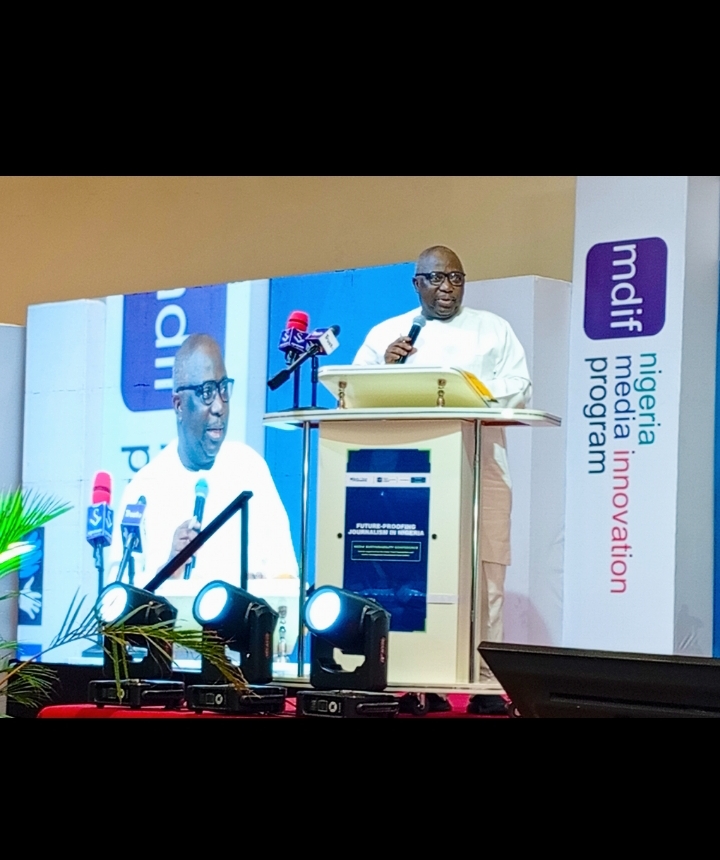
Keynote Addresses and Panel Discussions
In his keynote address, Mr. Dapo Olorunyomi, OON, Publisher of Premium Times and CEO of the Centre for Journalism Innovation and Development (CJID), stressed that for media organizations to survive and thrive, they must prioritize strong storytelling, editorial independence, and business clarity. He emphasized the need to build capacity within media institutions, diversify revenue streams, leverage technology effectively, and strengthen audience engagement without compromising journalistic values. Mr. Olorunyomi called for consistent talent development, innovative workflows, platform diversification, and active policy advocacy to sustain a resilient media ecosystem.
Speaking during his Opening Address Malam Bikya Bala, Chairman of Daily Trust Foundation shared the impactful contribution of Public Interest Journalism that drives both advocacy and solutions as a media foundation.
During the fireside chat with Harlan Mandel, CEO of MDIF, in an Interview with Chude Jideonwo, CEO Joy Inc., Mandel highlighted the crucial role of leadership innovation in building sustainable newsrooms. Bilal Randeree, MDIF’s Chief Program Officer, shared insights on integrating audience engagement with viable revenue models, urging media organizations to develop alternative products such as newsletters, podcasts, events, and training services as additional income streams.
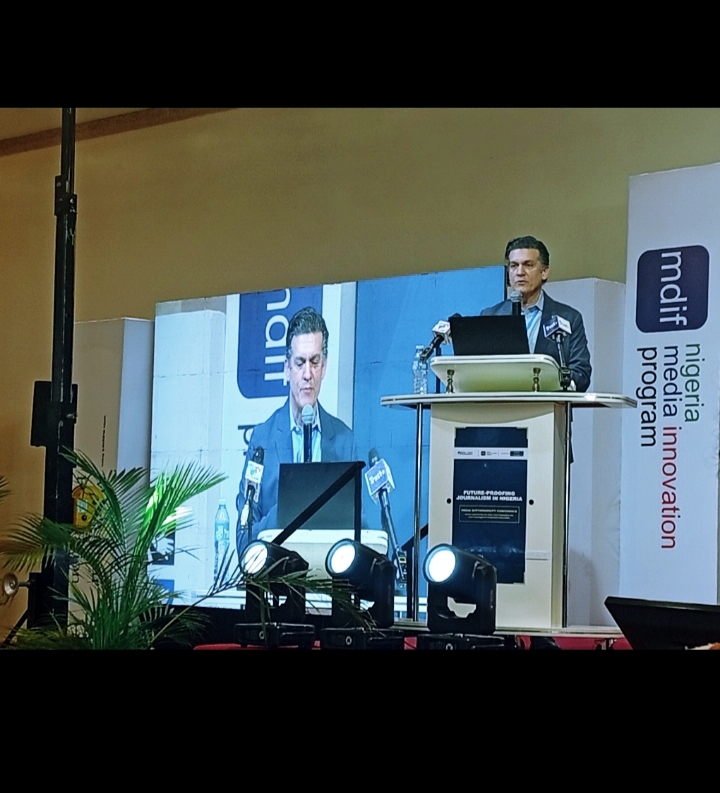
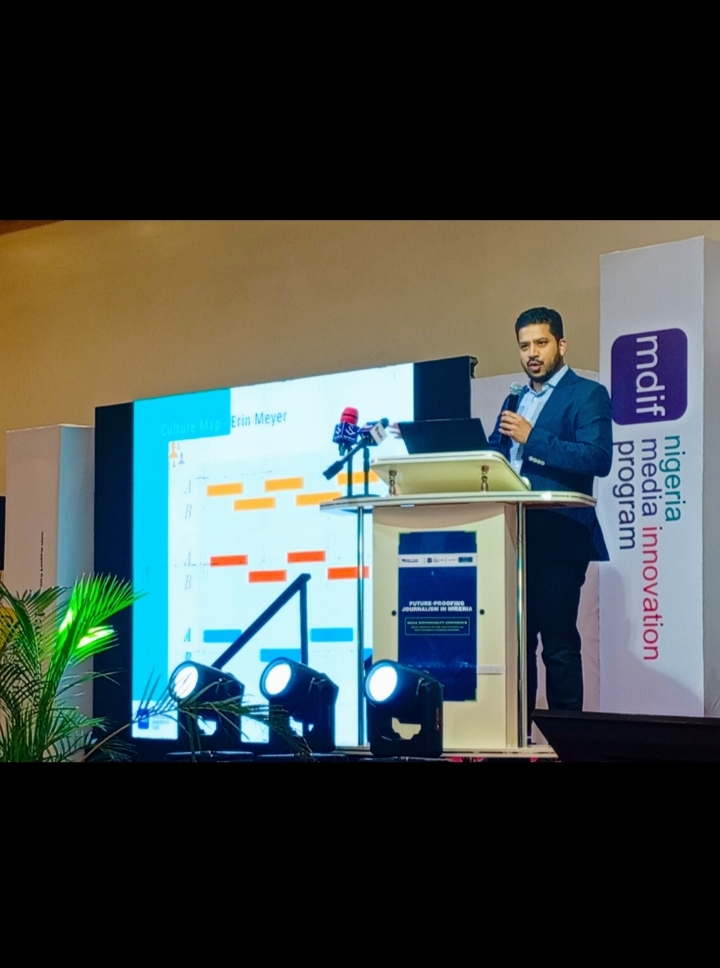
Mindset Shift and Strategic Collaboration
Throughout the sessions and workshops, speakers underscored the need for a mindset shift among media practitioners, emphasizing that passion alone is not enough and that resilience and business acumen are essential for long-term sustainability. They added that the media should be approached as a product, with audience understanding, data-driven decision-making, and human-centered storytelling as foundational elements.
The programmes director for NAMIP, Adedeji Adekunle, emphasized that collaboration must be strategic and purposeful, stating, “The heart of collaboration is strategy. It’s not just about working together; it’s about meaningful value exchange.” He also emphasised that “Smart people loves working with smart people”, clearly demonstrating how much commitment in responding properly to feedbacks can pivot a media organisation to success.
Key Takeaways
The conference deepened the conversation with a keynote presentation by Professor Umaru Pate, Vice Chancellor of Federal University Kashere, who outlined the realities of media survival on the African continent. He urged media professionals to better understand the business side of journalism, develop content that captures attention in a noisy digital world, and align their work with national development goals and inclusive growth. “Journalism is for Thinkers and highly creative minds,” he emphasized.
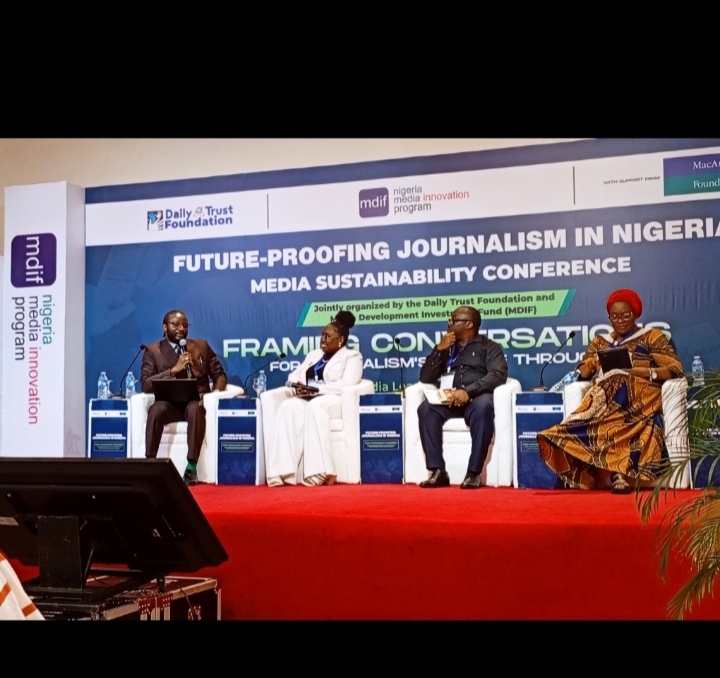
Breaking Down Barriers
The NAMIP Cohort’s Advisory Board, led by Catherine Gicheru, convened for a Media and Advisory and Support Panel Discussion. The panel, comprising Ruona Meyer an Investigative Journalist, Media Trainer and Researcher based in Germany alongside Prof. Suleiman Yar’Adua of Bayero University Kano and Motunrayo Alaka, ED Wole Soyinka Centre for Investigative Journalism explored the complexities of managing passion, ideas, and business challenges in media. They praised MDIF’s balanced approach to support, provide business strategies, and funding.
Media Leaders at the conference shared important tips they have also gleaned. Lekan Otufodunin, the Moderator of the Data-Driven Media Development panel noted that “Media is Business” should be the guiding principle for media leaders if they are to survive. Toun Okewale Sonaiya, CEO of Women Radio, shared a valuable lesson she was given from Channels TV Chairman, John Momoh on ‘Sticking to a niche’.
The Power of Each Platform: A Call for Equality in Journalism
Lady Ejiro Umukoro, a Broadcast Communications Specialist, Bestselling Author of DISTORTION and CEO of LightRay! Media, who Anchored the conference, emphasized the need to recognize the equality of all media platforms engaged in journalism. She noted that the psychological dichotomy where the print press in Nigeria thinks it should be elevated above electronic and broadcast media is misguided and detrimental to the growth and development of the media industry.
“As a media leader in Nigeria, I still find it troubling to see how the psychological dichotomy where the print press in Nigeria thinks it should be elevated above the electronic and broadcast media is still a thing,” Umukoro said. “Each platform has its own distinct characteristics, audience engagement, and storytelling capabilities. Print, radio, and television are not mutually exclusive, but rather complementary platforms that together provide a comprehensive picture of our world. We should be collaborators, not competitors,” she said. “The pie is big enough; know your audience and create sustainable revenues.”
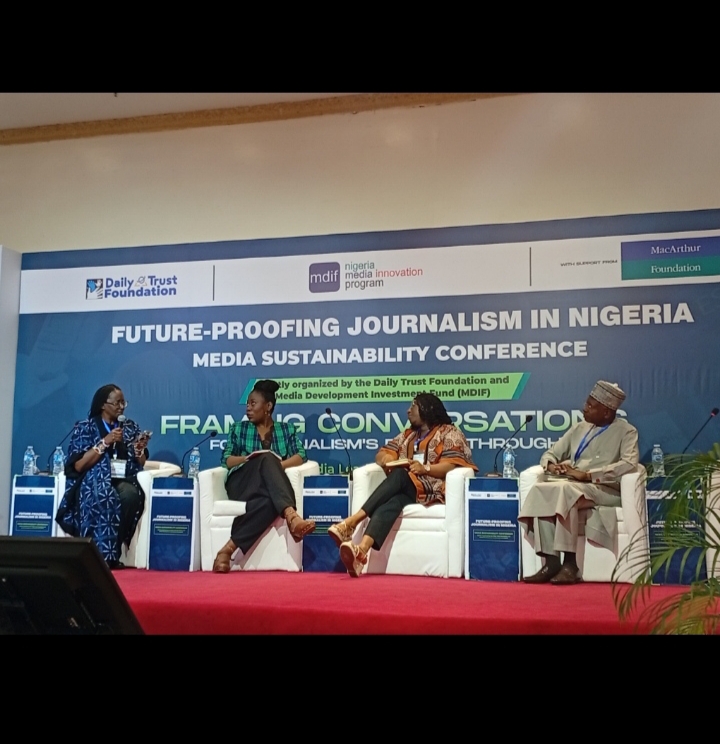
A New Era of Collaboration
The conference emphasized the need for media professionals to work together to promote a more vibrant, diverse, and inclusive media landscape. Umukoro noted that this requires recognizing the equality of all media platforms engaged in journalism and celebrating the unique strengths of each platform. “Let’s work together to tell the stories that matter,” she said. “All must be focused on providing top-quality journalism. That’s the only standard that distinguishes the wheat from the shaft.”
Expert Insights
During the Case Study Workshops alongside 28 Cohort Beneficiaries from the first 3-year cycle at the conference shared insights on how innovation, leadership, and audience engagement in building sustainable newsrooms was crucial to their success. The NAMIP Cohort received pitch presentations, follow-up support and funding. The beneficiaries are:
- Business Day
- women Radio
- Daily Trust
- Culture Custodian
- ASHE News
- Nigeria Health Watch
- Prime Progress
- Solace Base
- The Republic
- TV360
- Wikkitimes
- With Chude
- Comminique
- Signature TV
- Voix Collective
- Premium Times
- Omalicha Radio
- Ikeja Record
- Lavunn FM
- MSME Africa
- Edugist
- Farming Farmers Farm
- Dubawa
- Dataphyte
- FIJ
- HumAngle
- Chicoco Radio
- Techpoint Africa
During the case study workshop sessions, Dara Ajala, NAMIP Programme Manager,, MDIF address the need for media owners and entrepreneurs to know their audience as a key barometer. “In this tech age and AI, it is all about communities. Think of media products that your community wants. Audience aren’t just there, they’re built. You must learn how to grow, segment and engage audiences with intention.” Dara breaks down what it takes to turn passive readers into loyal supporters using data, storytelling and smart distribution.
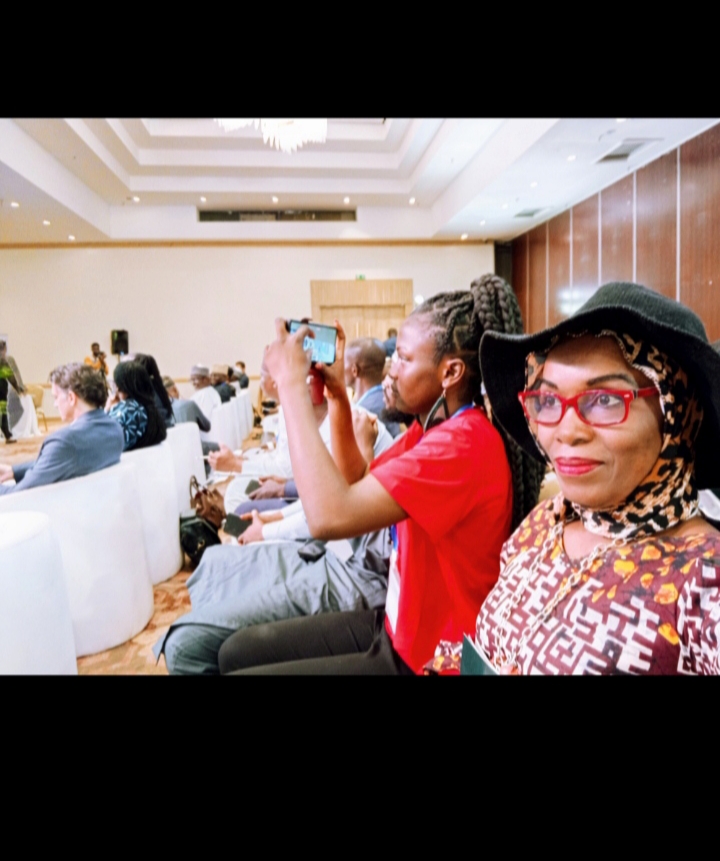
On Redesigning Journalism Media Operations to Survive and Thrive Amidst Unpredictable Change, Vivian Ojomu, NAMIP Programme Assistant, MDIF along with panel discussants, Emmanuel Paul, Managing Editor at Business Front (Techpoint Africa), Nolwazi Tusini, Programme Director, Amplify South Africa and Asha Mwuli, Founder and Editor DebunkMedia, Amplify Kenya shared insights on how AI is transforming newsrooms, the ethical lines that needs to be drawn and the best approaches media organisations can embrace AI and other emerging tools to boost efficiency and storytelling while staying true to journalism’s core values. This session finally helped the audience understand that “AI will definitely create job loss the same way it will create job opportunities for those are quick to embrace and adapt.”
On Media Revenue Generation for Newsroom, Fu’ad Lawal an archivist and media product expert drew from a decade of experience to break down a practical playbook on how to diagnose a media’s current revenue engine, clarifying the media’s core audience, value proposition and levers of growth. “The mistake the media has always made is thinking they can monitise news.”
Temitayo Akinyemi, NAMIP Media Advisor, MDIF during the final curtain of the conference, walked the audience in a step by step product development strategy on how they can begin to create unique and niche products.
The Media Sustainability Conference provided a timely platform for critical discussions on the future of journalism in Nigeria and across Africa. The conference emphasized the need for media professionals to work together to promote a more inclusive and equitable media landscape. By recognizing the equality of all media platforms engaged in journalism and celebrating the unique strengths of each platform, we can promote a more vibrant, diverse, and inclusive media landscape that serves the needs of our diverse audiences.
The conference concluded by underscoring that media sustainability demands adaptive leadership; journalists must invest in future-proofing their skills; innovation cannot thrive in isolation; and data must guide both editorial and business decisions. The Media Sustainability Conference provided not only knowledge but a blueprint for what journalism in Africa can become in terms of impact, innovation, and economic viability.





Comments